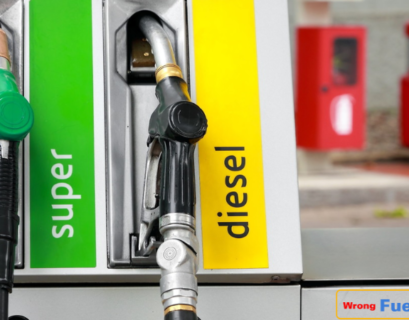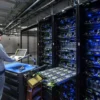Banning petrol or diesel automobiles has been gaining popularity because governments and cities worldwide focus on fighting climate change and decreasing urban pollution.
The transition to electric-powered and alternative gasoline cars affords a considerable shift within the car industry and society, which can cause petrol and diesel car issues.
This blog explores the capabilities and effects of this kind of ban, the blessings, demanding situations, and the transportation destiny.
Effects of a Diesel and Petrol Car Ban
1. Environmental Benefits
There is a significant reason for banning petrol and diesel cars in any country. These cars release greenhouse gases into the environment, directly affecting humans, animals, and other living beings on Earth. Internal combustion engines (ICEs) release large amounts of carbon dioxide (CO2) and nitrogen dioxide (NO2), all of which contribute to climate change and air pollution.
We should replace our petrol or diesel vehicles with electric vehicles. By doing so, we can decrease the percentage of carbon dioxide in the environment and improve the air quality.
2. Health Improvements
The discount on air pollutants from petrol and diesel motors can cause extensive health advantages. Particle matter and NOx, among other pollutants, are linked to respiratory problems and heart disease.
We should use electric or hydro-generated vehicles. These vehicles do not release polluted gases into the environment, which can prevent problems such as heart attacks, allergies, and other pollution-related diseases.
3. Changes in the Automotive Industry
 Banning these automobiles is essential. It can raise the revenue of electric cars and stimulate their industry. Car manufacturers must invest in research processes to develop vehicles that produce less pollution.
Banning these automobiles is essential. It can raise the revenue of electric cars and stimulate their industry. Car manufacturers must invest in research processes to develop vehicles that produce less pollution.
They must also try to manufacture electric cars to boost their sales in this demanding era. The demand for electric vehicles will increase the growth of related industries, such as battery and charging manufacturers.
4. Economic Impact
The transition to electric cars may have various financial effects. On the one hand, new activity possibilities will rise inside the EV production, battery production, and charging infrastructure sectors.
On the other hand, industries related to oil refineries and their parts-making companies will also face a decrease in revenue and losses of employee jobs. Governments must manage this transition cautiously to mitigate adverse outcomes for workers and companies.
5. Infrastructure Changes
A complete ban on petrol and diesel cars will necessitate enormous modifications in infrastructure. Electric motors require a big community of charging stations, while hydrogen-powered cars need refueling stations.
Urban planning must accommodate these new facilities, and power grids might also need enhancements to handle multiplied strength demand.
6. Impact on Consumers
Consumers will revel in every advantage and demanding situation. Electric vehicles commonly offer decreased operating fees due to cheaper power than petrol and diesel.
However, the initial purchase charge of EVs can be better, even though charges decrease our time. Consumers will also have to adjust to new charging practices and technologies.
7. Market and Policy Shifts
Governments will play a vital role in facilitating the transition through implementing supportive policies and incentives.
These may consist of subsidies for electric-powered vehicle purchases, funding for charging infrastructure, and stricter emissions policies. Policymakers must address potential market disruptions and ensure an honest and equitable transition.
Challenges and Considerations
1. Battery Disposal and Recycling
The massive adoption of electric cars raises concerns about battery disposal and recycling. EV batteries comprise materials that can be dangerous if now not well controlled. Developing efficient recycling approaches and sustainable practices for battery production is crucial to minimizing environmental impact.
2. Range Anxiety
One of the barriers to vast EV adoption is variety tension, or the worry of going for walks out of battery energy before reaching a charging station. Expanding the network of speedy charging stations and improving battery generation can address this problem and make EVs more convenient for regular use.
3. Energy Source for Charging
The environmental advantages of electric cars are intently related to the source of the electricity used for charging. The benefits will be maximum if the strength comes from renewable sources like wind or solar.
However, if it comes from fossil fuels, the general discount in emissions can be much smaller. A transition to cleaner energy resources is essential to comprehend electric motors’ environmental advantages fully.
FAQs
1. What immediate blessings are expected from banning petrol and diesel motors?
Immediate blessings include decreased greenhouse fuel emissions and stepped-forward airfins.
2. How will the car sector deal with this ban?
The enterprise will shift toward electric and opportunity gas automobiles, requiring significant investment and innovation.
3. What monetary impacts may result from banning petrol and diesel vehicles?
Economic impacts encompass job creation inside the EV quarter and capability process losses in industries reliant on inner combustion engines.
4. What infrastructure adjustments are necessary to ban petrol and diesel vehicles?
Necessary modifications encompass expanding charging networks for electric-powered cars and developing hydrogen refueling stations.
5. How can we address the range tension in electric automobiles?
Expanding rapid-charging infrastructure and improving battery generation can help alleviate variety anxiety.
Conclusion
Banning petrol and diesel cars is a reasonable effort if taken by any government. It can result in a fresher, cleaner atmosphere that is better for human health. While this change provides benefits like a fresh air quality decrease in greenhouse gases with these aspects, it also imposes challenges that someone must address.
Due to this shift, the car enterprise, economy, and infrastructure will all undergo massive changes. By proactively handling those changes and supporting the development of recent technologies and infrastructure, we can ensure an easy transition and recognize the environmental and fi
tness benefits of this critical policy shift.














